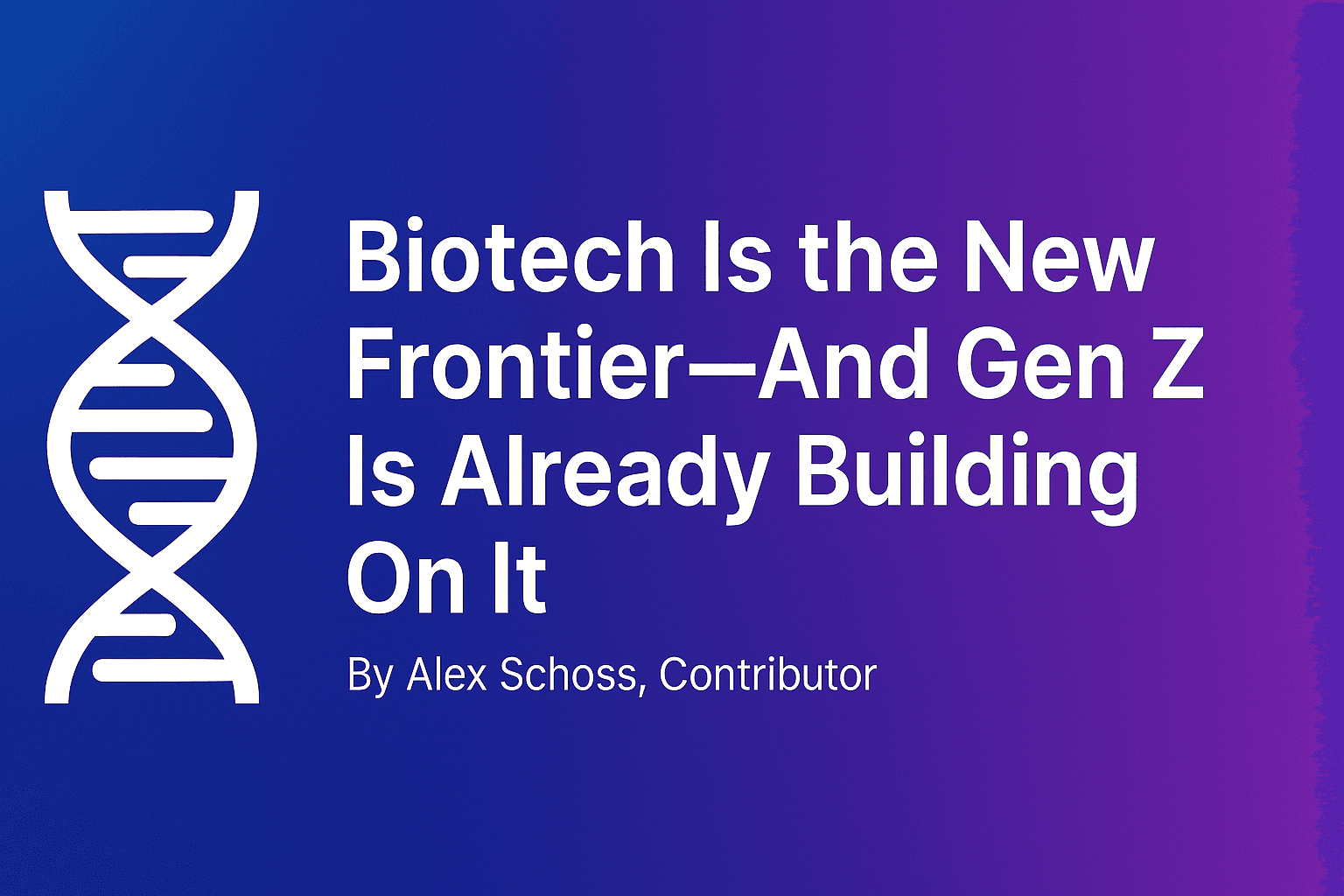
Biotech Is the New Frontier
In a world obsessed with apps, AI, and attention spans, biotech often flies under the radar. It’s not flashy. It’s slow, complicated, and highly regulated. But make no mistake: biotech is the next frontier—and the next generation is already staking its claim.
From synthetic biology to CRISPR startups, Gen Z is stepping into the lab, not just with pipettes and petri dishes, but with founder ambition. And that shift might redefine what we think of as a “tech founder.”
A New Kind of Builder
When we talk about startup founders, we usually picture someone in a hoodie, glued to a MacBook. But walk into today’s university biotech incubators or wet labs and you’ll find a different archetype: a 21-year-old who’s just as fluent in machine learning as they are in gene sequencing.
They’re not just studying biology—they’re engineering it.
And they’re doing it earlier than ever. Students are founding synthetic biology companies. They’re using AI to design drug candidates. They’re rethinking food, materials, and medicine at the cellular level. And they’re doing it with the same speed and scrappiness we’ve come to expect from software founders.
Why Biotech, and Why Now?
Because we’ve reached an inflection point.
Tools like CRISPR, mRNA delivery, and high-throughput gene synthesis used to live behind billion-dollar labs. Now they’re increasingly accessible—especially on university campuses. Add open-source tools, cheaper gene sequencing, and cloud biology platforms, and suddenly a 22-year-old with the right knowledge and ambition can prototype what once took entire pharma teams.
The COVID-19 pandemic cracked open biotech to the public. Suddenly, mRNA wasn’t just academic—it was on the news. For Gen Z, that visibility was catalytic. It showed that biology is tech. And it made the idea of becoming a biotech founder feel… real.
The Unique Challenges (and Why That’s a Good Thing)
Biotech isn’t easy. Regulatory hurdles are massive. Funding is harder to secure than in SaaS. Iteration cycles are longer, and many projects live in scientific uncertainty for months—if not years.
But here’s the thing: that’s why it’s exciting. It forces rigor. It demands clarity. And it rewards founders who can bridge two worlds: the scientific and the entrepreneurial.
That’s where Gen Z shines. They’re interdisciplinary by nature—coding one day, reading bio papers the next. They’re not intimidated by steep learning curves. They expect them.
And communities like Young Founders Forum (YFF) are surfacing more of these biotech builders every month. They’re often quieter than their software counterparts—but no less ambitious.
What the Future Looks Like
Over the next decade, the most meaningful startups won’t just be optimizing clicks—they’ll be engineering cells, rewriting DNA, and redefining what it means to be healthy, sustainable, and alive.
We’ll see more teenage founders launching diagnostic tools. More bioengineers turning side projects into real biotech companies. More labs being spun out into venture-backed startups led by 24-year-olds with both a PhD and a Twitter following.
In other words: biotech won’t be a niche—it’ll be the next wave.
Final Thoughts
If the last decade belonged to software, this next one might belong to biology. And Gen Z? They're not just ready—they’re already building.
The tools are there. The talent is there. What’s needed now is belief—from investors, educators,
and ecosystems.
Because the future of biotech isn’t just Petri dishes and patents. It’s passion, urgency, and a generation of founders who dare to mix molecules with ambition.